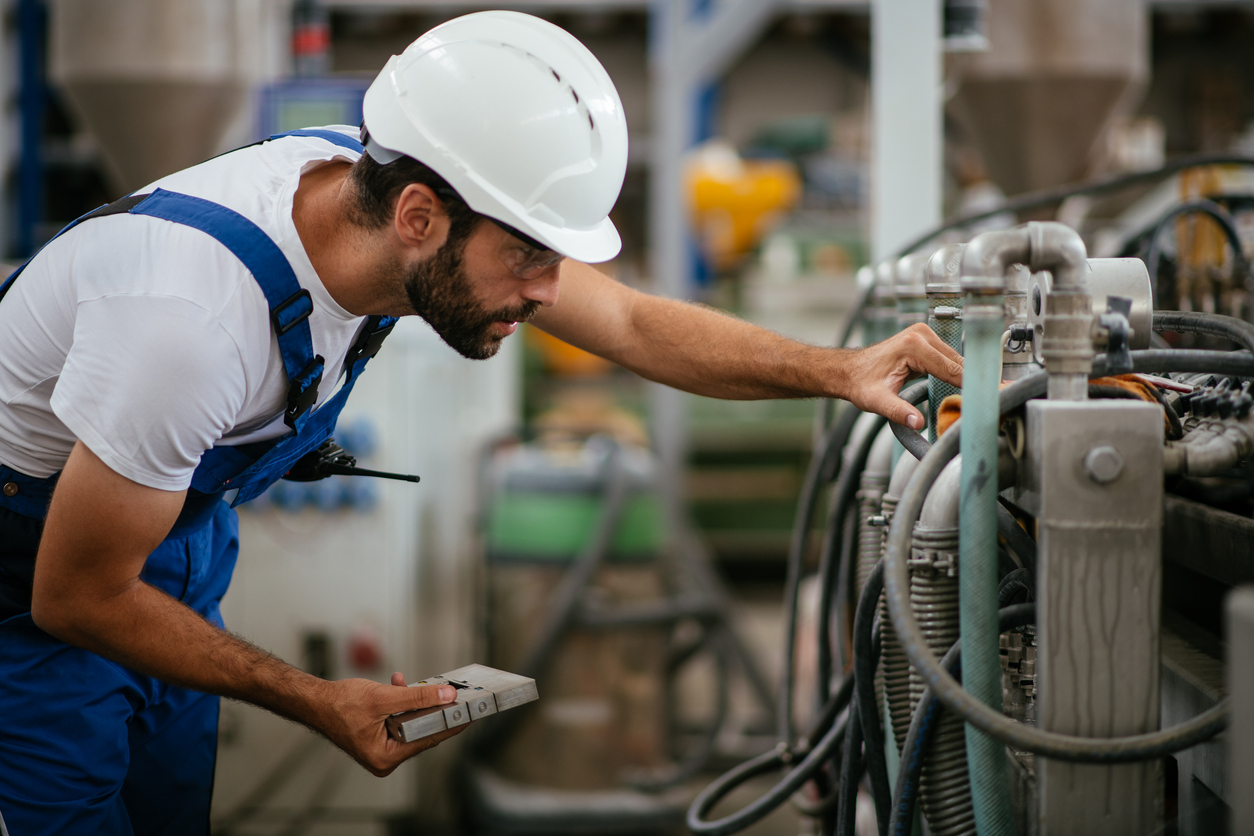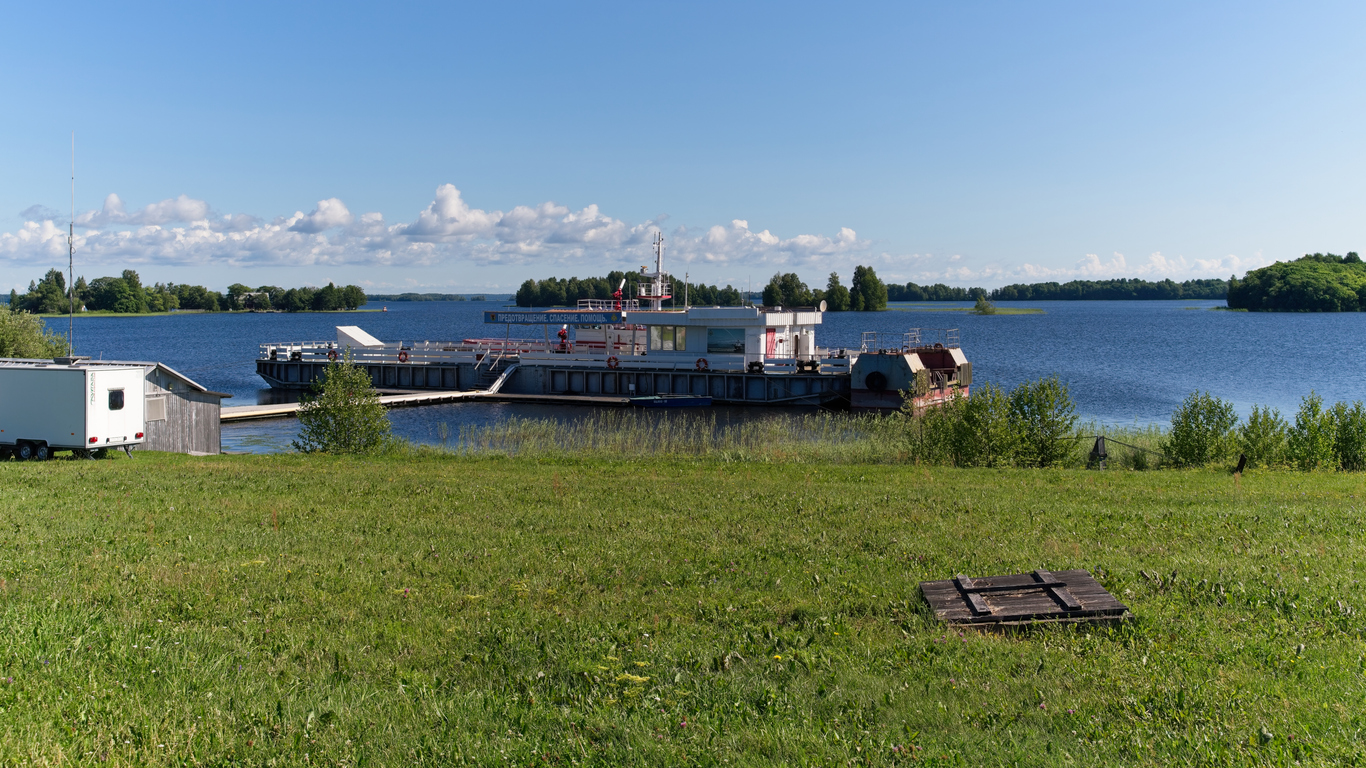Ensuring Safety and Compliance: A Look at Oil & Gas Pipeline Inspection in Nigeria with Wigmore Trading
Ensuring Safety and Compliance: A Look at Oil & Gas Pipeline Inspection in Nigeria with Wigmore Trading
Oil and gas pipelines are the lifeline of Nigeria’s energy industry, but ensuring their safety and compliance is a complex and vital task. In this blog post, we dive into the world of pipeline inspection in Nigeria with Wigmore Trading – a leading provider of innovative solutions for the oil and gas sector. Join us as we explore the challenges, regulations, and technologies shaping the future of pipeline integrity in Nigeria.
Introduction to Oil & Gas Pipeline Inspection in Nigeria
Introduction to Oil & Gas Pipeline Inspection in Nigeria
The oil and gas industry is a major contributor to the Nigerian economy, accounting for nearly 90% of the country’s export earnings. With such high stakes, the safety and integrity of oil and gas pipelines are critical factors that cannot be overlooked. This is why regular inspection of these pipelines is crucial to ensure their safe operation and compliance with industry standards.
Oil and gas pipeline inspection in Nigeria involves the systematic examination of pipelines, their components, as well as surrounding areas to detect any potential defects or damage that could lead to leaks or other hazardous situations. These inspections are carried out at various stages during the pipeline’s lifespan – from construction and installation to maintenance and decommissioning.
One of the key reasons for conducting pipeline inspections is to ensure compliance with regulatory requirements set by government agencies such as the Department of Petroleum Resources (DPR) in Nigeria. These regulations require operators of oil and gas pipelines to implement regular inspection programs based on internationally recognized standards such as API 570, API 653, ASME B31.8, among others.
In addition to regulatory compliance, pipeline inspections also play a vital role in ensuring the safety of workers, communities nearby, and environmental protection. The consequences of a failure in an oil or gas pipeline can be catastrophic – leading not only to loss of life but also significant economic losses due to production downtime.
To carry out effective pipeline inspections, specialized equipment such as ultrasonic testing tools, magnetic flux leakage detectors, visual inspection cameras, among others are used by certified inspectors who possess extensive knowledge and expertise in this field.
It should also be noted that due to the vast network of pipelines across different terrains in Nigeria – including land-based and offshore installations – remote monitoring technologies have become increasingly important for timely detection of potential issues before they escalate into major problems. These technologies utilize sensors installed along the length of a pipeline that can detect changes in temperature or pressure, signaling the need for a physical inspection.
Pipeline inspection in Nigeria is a crucial aspect of ensuring the safety and compliance of oil and gas operations. It requires strict adherence to industry standards and regulations, as well as the use of advanced technologies to detect potential issues promptly. With proper inspections and maintenance, we can ensure the safe and efficient operation of oil and gas pipelines in Nigeria.
The Importance of Regular Pipeline Inspections
Regular pipeline inspections are crucial for ensuring the safety and compliance of oil and gas pipelines in Nigeria. These inspections involve thorough visual and non-destructive testing of pipelines to identify any potential defects or irregularities that could compromise the integrity of the pipeline system.
One of the main reasons why regular pipeline inspections are important is to prevent accidents and environmental hazards. Pipelines transport flammable and hazardous materials, making them vulnerable to leaks, cracks, or corrosion. If these issues go undetected, they can lead to devastating consequences such as explosions, fires, or oil spills which can harm people, damage property, and pollute the environment. Regular inspections help detect these issues early on so that appropriate maintenance and repairs can be carried out before they escalate into major incidents.
Moreover, regular pipeline inspections also play a critical role in maintaining compliance with regulatory standards. In Nigeria, the Department of Petroleum Resources (DPR) is responsible for regulating all activities within the oil and gas industry. This includes setting guidelines for pipeline construction, operation, maintenance, and inspection. Failure to comply with these regulations could result in penalties and legal consequences for companies operating in the industry. By conducting regular inspections, companies ensure that their pipelines meet all required standards and remain compliant with DPR guidelines.
Another key benefit of regular pipeline inspections is cost-effectiveness. While some may see inspections as an unnecessary expense, it actually helps companies save money in the long run by preventing costly repairs or replacements due to major failures. Inspections allow companies to catch small issues before they become bigger problems that require extensive maintenance work or even complete replacement of sections of the pipeline.
Furthermore, regular pipeline inspections also contribute to maintaining public trust in the oil and gas industry. The frequent media coverage of accidents involving pipelines has led to increased scrutiny from local communities who live near these facilities. By demonstrating a commitment to safety through regular inspections and proper maintenance practices, companies can build trust with community members who may have concerns about the potential risks associated with living near pipelines.
Regular pipeline inspections are essential for ensuring the safety and compliance of oil and gas pipelines in Nigeria. They not only prevent accidents and environmental disasters but also help companies avoid costly repairs, maintain compliance with regulations, and build trust with local communities. It is crucial for companies to make pipeline inspections a top priority to ensure the continued safe operation of their facilities.
Understanding Safety and Compliance Standards
Understanding Safety and Compliance Standards:
Safety and compliance standards are essential in the oil and gas industry, particularly when it comes to pipeline inspection. These standards are put in place to ensure the safety of both people and the environment, as well as to comply with local regulations. In Nigeria, Wigmore Trading is a leading provider of pipeline inspection services that strictly adhere to these safety and compliance standards.
In order to understand the importance of safety and compliance standards, it is crucial to first define what they entail. Safety standards refer to specific guidelines or protocols that must be followed in order to minimize risks and prevent accidents. These can include procedures for handling hazardous materials, emergency response plans, regular maintenance checks, and training programs for employees.
On the other hand, compliance standards refer to laws and regulations set by governing bodies that companies must abide by. This ensures that companies are operating safely, ethically, and within legal boundaries. Compliance standards can cover a wide range of areas such as environmental protection, employee rights, or product quality.
When it comes specifically to oil and gas pipelines in Nigeria, there are several key safety and compliance standards that must be met. The Department of Petroleum Resources (DPR) is responsible for regulating these pipelines through regular inspections and enforcing strict guidelines. These include measures such as corrosion prevention systems, leak detection systems, pressure testing procedures, emergency shut-off valves, among others.
Additionally, international organizations like the American Petroleum Institute (API) have also developed their own set of safety standards which are widely recognized within the industry globally. For example,
API 1169 provides guidance on construction activities related to oil pipelines including welding processes used during installation.
Ensuring compliance with these rigorous safety standards is vital not only for protecting human lives but also for maintaining a sustainable environment for future generations. Oil spills or leaks caused by negligence or lack of adherence can have severe consequences on wildlife habitats as well as water sources used by local communities.
Understanding safety and compliance standards is crucial in the oil and gas industry, especially when it comes to pipeline inspection. Wigmore Trading takes great care in ensuring that all their services meet these standards to ensure the safety of people and the environment, while also complying with local regulations set by governing bodies. By prioritizing safety and compliance, companies like Wigmore Trading play a vital role in maintaining the integrity and sustainability of Nigeria’s oil and gas pipelines.
Challenges Faced in Pipeline Inspection in Nigeria
Challenges Faced in Pipeline Inspection in Nigeria:
The oil and gas industry plays a significant role in the Nigerian economy, making it crucial to ensure the safety and compliance of its infrastructure. Pipelines are the primary mode of transporting oil and gas across the country, making them vital for the industry’s operations. However, conducting pipeline inspections in Nigeria presents several challenges that need to be addressed to ensure efficient and safe operations.
One of the major challenges faced by pipeline inspection teams in Nigeria is inadequate resources. Due to budget constraints and mismanagement of funds, there is a lack of modern equipment and technology needed for accurate inspections. This poses a threat as outdated equipment may not detect flaws or defects accurately, leading to potential risks such as leaks or ruptures. Additionally, limited resources also affect the frequency of inspections, leaving pipelines vulnerable to undetected damages.
Another obstacle faced by pipeline inspectors is the vast geographical landscape of Nigeria. The country spans over 923,000 square kilometers with complex terrain, including swamps, forests, and mountains. Accessing remote locations can be challenging and time-consuming for inspection teams, resulting in delays or incomplete inspections. Moreover, these harsh environments can also damage pipelines due to natural factors such as erosion or movement of earth.
The issue of vandalism also poses a significant challenge for pipeline inspection in Nigeria. The high demand for oil and gas has led to an increase in illegal tapping activities by criminal groups looking to siphon off valuable resources. These illegal activities not only cause financial losses but also compromise the integrity of pipelines leading to safety concerns.
Furthermore, inadequate regulatory framework and enforcement pose another hurdle for ensuring compliance during pipeline inspections in Nigeria. The existing regulations are often outdated or poorly enforced due to corruption within regulatory bodies. This leads to inconsistencies in standards across different regions, hindering effective monitoring and maintenance of pipelines.
There is a shortage of skilled manpower trained specifically for pipeline inspection processes in Nigeria. Inspectors require specialized training and knowledge to operate modern equipment and accurately interpret inspection data. However, the lack of proper training facilities and programs in the country limits the availability of qualified inspectors.
Pipeline inspections in Nigeria are crucial for ensuring safety and compliance in the oil and gas industry. However, inadequate resources, challenging terrain, vandalism, weak regulatory framework, and shortage of skilled manpower present significant challenges that must be addressed to maintain efficient operations. It is imperative for all stakeholders to work together towards finding solutions to these challenges for a safer and more sustainable future for the Nigerian oil and gas sector.
Introducing Wigmore Trading and their Role in Pipeline Inspection
Introducing Wigmore Trading and their Role in Pipeline Inspection
Wigmore Trading is a leading company in Nigeria that specializes in providing equipment and services for pipeline inspection. With over 20 years of experience in the oil and gas industry, Wigmore Trading has established itself as a trusted partner for both local and international clients.
Their role in pipeline inspection goes beyond just selling equipment, as they also offer consulting services to help companies comply with safety regulations and ensure the integrity of their pipelines.
One of the key factors that sets Wigmore Trading apart from other suppliers is their commitment to quality. All of their products are carefully selected from reputable manufacturers around the world, ensuring that they meet international standards and are suitable for use in Nigeria’s unique environment.
In addition to offering high-quality equipment, Wigmore Trading also provides comprehensive training programs for pipeline operators on how to safely operate and maintain their equipment. This not only improves operational efficiency but also promotes safety among workers.
Another crucial aspect of pipeline inspection is regular maintenance and repair. This is where Wigmore Trading’s expertise comes into play. They have a team of highly skilled technicians who can provide on-site repairs, calibration, and maintenance services for all types of pipeline inspection equipment. This minimizes downtime for companies and ensures that their pipelines are always functioning at optimal levels.
Furthermore, Wigmore Trading offers innovative solutions such as remote monitoring systems that allow real-time data transmission from the field to a central control room. This enables quick detection of any potential issues or anomalies, allowing preventive measures to be taken before they escalate into major problems.
Apart from providing technical support, Wigmore Trading also plays an active role in promoting safety awareness within the industry. They regularly organize seminars, workshops, and conferences to educate stakeholders on best practices for maintaining safe pipelines. This not only benefits individual companies but also contributes to improving overall safety standards within the Nigerian oil & gas sector.
Wigmore Trading is much more than just a supplier of pipeline inspection equipment. They are a reliable partner for companies in the oil and gas industry, offering comprehensive solutions to ensure safety and compliance. With their expertise and dedication to quality, Wigmore Trading is at the forefront of promoting the integrity and sustainability of Nigeria’s pipeline infrastructure.
Technology Used in Oil & Gas Pipeline Inspection
Technology has played a crucial role in the oil and gas industry, especially when it comes to pipeline inspection. With advancements in technology, companies are now able to conduct more efficient, accurate, and safe inspections of their pipelines. In this section, we will take a closer look at some of the technologies used in oil and gas pipeline inspection.
1. Pipeline Inspection Gauges (PIGs):
Pipeline Inspection Gauges or PIGs are one of the most widely used technologies for inspecting pipelines. These devices are inserted into the pipeline and travel along with the flow of product within the pipe. PIGs use various sensors such as ultrasonic sensors, magnetic flux leakage sensors, and eddy current sensors to collect data about the condition of the pipe’s internal wall. This data is then analyzed to identify any potential defects or damages.
2. Drones:
Drones have become increasingly popular in recent years for pipeline inspection. They offer a cost-effective solution for conducting aerial inspections of pipelines that are located in remote or hard-to-reach areas. Equipped with high-resolution cameras and thermal imaging systems, drones can capture detailed visual data of pipelines from above, allowing inspectors to identify any abnormalities or leaks.
3. Laser Scanning:
Laser scanning is another advanced technology used in pipeline inspection that provides accurate 3D images of pipelines’ surfaces. This non-destructive technique uses laser light pulses to measure distances between objects and create highly detailed images called point clouds. Laser scanning allows inspectors to detect corrosion or deformation on a pipe’s surface without having to physically touch it.
4. Guided Wave Ultrasonics:
Guided Wave Ultrasonics (GWU) is a technique that uses ultrasonic waves propagated along the length of a pipe to detect corrosion or other defects within its walls. The advantage of GWU is its ability to cover long distances without requiring access points along the pipeline route.
5. Real-Time Monitoring Systems:
Real-time monitoring systems consist of sensors placed along the pipeline route that detect and measure changes in pressure, flow rate, temperature, and other parameters. These sensors transmit data to a central control room where operators can monitor the pipeline’s condition and identify any potential issues.
These are just some of the technologies used in oil and gas pipeline inspection. Together, they provide a comprehensive approach to ensuring the safety and compliance of pipelines in Nigeria. With the use of advanced technology, companies like Wigmore Trading can minimize risks and prevent potential accidents or leaks while maintaining efficient operations.
Benefits of Partnering with Wigmore Trading for Pipeline Inspections
Partnering with Wigmore Trading for pipeline inspections can offer numerous benefits for companies operating in the oil and gas industry in Nigeria. As a leading provider of pipeline inspection services, Wigmore Trading has extensive experience and expertise in ensuring safety and compliance within the sector. In this section, we will discuss some of the key benefits that come with partnering with Wigmore Trading for pipeline inspections.
1. Compliance with Regulatory Standards
One of the major benefits of working with Wigmore Trading is ensuring compliance with regulatory standards set by relevant authorities such as the Department of Petroleum Resources (DPR) and National Oil Spill Detection and Response Agency (NOSDRA). Violation of these standards can result in hefty fines, legal consequences, and damage to a company’s reputation. By partnering with Wigmore Trading, companies can rest assured that their pipelines are meeting all necessary regulations, avoiding potential penalties or disruptions to operations.
2. Enhanced Safety Measures
Pipeline inspections are essential for identifying potential hazards or risks along the length of a pipeline. With advanced equipment and highly trained personnel, Wigmore Trading conducts thorough inspections to detect any defects or damages that could compromise the safety of operations. This proactive approach ensures early detection and mitigation of any potential hazards before they escalate into more significant issues.
3. Cost Savings
Partnering with Wigmore Trading for pipeline inspections can also lead to cost savings in the long run. Regular inspections help identify small issues before they become significant problems that require costly repairs or replacements. Additionally, detecting leaks or other defects early can prevent expensive environmental cleanup costs and damage to surrounding communities.
4. Minimized Downtime
Pipeline failures can result in significant downtime for oil and gas companies, leading to financial losses and disruptions to production schedules. By conducting regular inspections with state-of-the-art technology like intelligent pigging tools, Wigmore Trading helps identify potential failures before they occur, minimizing downtime and maintaining efficient operations.
5. Improved Reputation
Working with a reputable and experienced company like Wigmore Trading for pipeline inspections can enhance a company’s reputation within the industry. It shows a commitment to safety, compliance, and responsible operations, which can attract potential investors and partners.
Partnering with Wigmore Trading for pipeline inspections offers various benefits such as regulatory compliance, enhanced safety measures, cost savings, minimized downtime, and improved reputation. These advantages not only ensure smooth operations but also demonstrate a commitment to upholding best practices in the oil and gas industry in Nigeria.
Case Studies: Successful Pipelines Inspections with Wigmore Trading
Case Studies: Successful Pipeline Inspections with Wigmore Trading
Wigmore Trading has established itself as a leading provider of pipeline inspection services in Nigeria. We have worked with numerous clients across the country, helping them ensure safety and compliance in their oil and gas pipelines. Our team of highly trained professionals uses state-of-the-art technology and techniques to conduct thorough inspections, identifying any potential issues or risks before they escalate into major problems.
In this section, we will take a closer look at two case studies that highlight our successful pipeline inspection projects.
Case Study 1: Pipelines in the Niger Delta Region
The Niger Delta region is known for its extensive network of oil and gas pipelines, making it a crucial area for inspection services. One of our clients, an international oil company operating in the region, faced numerous challenges in maintaining the integrity and safety of their pipelines. They approached us to conduct a comprehensive inspection of their pipelines and provide recommendations for maintenance.
Our team conducted a detailed visual survey using high-resolution cameras attached to drones. This allowed us to gather accurate data on the condition of the pipelines without disrupting operations. We also used ultrasonic testing (UT) to identify any corrosion or cracks that were not visible during the visual inspection.
Based on our findings, we recommended immediate repairs for some sections of the pipeline that showed signs of corrosion and scheduled regular maintenance for others. Our client was able to address these issues promptly, minimizing downtime and ensuring the safety of their operations.
Case Study 2: Gas Pipelines in Lagos State
In another project, we were hired by a local gas distribution company operating in Lagos State to inspect their network of gas pipelines. The client was concerned about potential leaks or damage that could compromise public safety.
Using advanced leak detection equipment such as laser imaging spectroscopy (LIS) and acoustic emission testing (AET), we were able to accurately locate any leakage points along the pipelines without causing any disruption to the gas supply. Our team also conducted a thorough inspection of the pipelines using magnetic flux leakage (MFL) technology to identify any corrosion or structural defects.
The results of our inspection allowed our client to proactively address potential risks and ensure compliance with safety regulations. They were able to make necessary repairs and upgrades, preventing any potential disasters and maintaining a safe environment for their operations.
In both these case studies, Wigmore Trading showcased its expertise in providing comprehensive pipeline inspection services. By utilizing cutting-edge technology and techniques, we were able to help our clients maintain the safety and integrity of their pipelines while ensuring compliance with industry standards. Contact us today for all your pipeline inspection needs in Nigeria.
Future of Oil & Gas Pipeline Inspection in Nigeria
The oil and gas industry in Nigeria is a major contributor to the country’s economy, accounting for over 80% of its export earnings. However, with this growth comes the need for stringent safety measures and compliance regulations, especially when it comes to pipeline inspection. The future of oil and gas pipeline inspection in Nigeria holds tremendous potential for advancement, as technology continues to evolve and new methods are being developed.
One of the main challenges faced by pipeline operators in Nigeria is the vast network of pipelines spread across remote locations. Traditional methods of inspection such as visual inspections or manual monitoring are time-consuming, expensive, and can be hazardous to workers’ health. This has led to an increased focus on using advanced technologies such as drones, artificial intelligence (AI), and internet-of-things (IoT) devices for pipeline inspections.
Drones equipped with high-definition cameras can capture detailed images of pipelines from above, making it easier to detect any abnormalities or damages. They also significantly reduce inspection time and costs while ensuring the safety of personnel involved. Furthermore, AI technology uses machine learning algorithms to analyze data collected by drones or other sensors installed on the pipelines. This enables predictive maintenance by identifying potential issues before they become critical problems.
In addition to drones and AI technology, IoT devices can be placed along pipelines to monitor factors such as temperature, pressure levels, flow rates, etc. in real-time. These devices send alerts if there are any deviations from normal operating conditions, allowing operators to take immediate action.
The use of these advanced technologies not only enhances safety but also improves efficiency in detecting leaks or damages that could lead to environmental disasters or supply disruptions. It also allows for better planning and scheduling of maintenance activities for optimal performance.








Comments are closed.